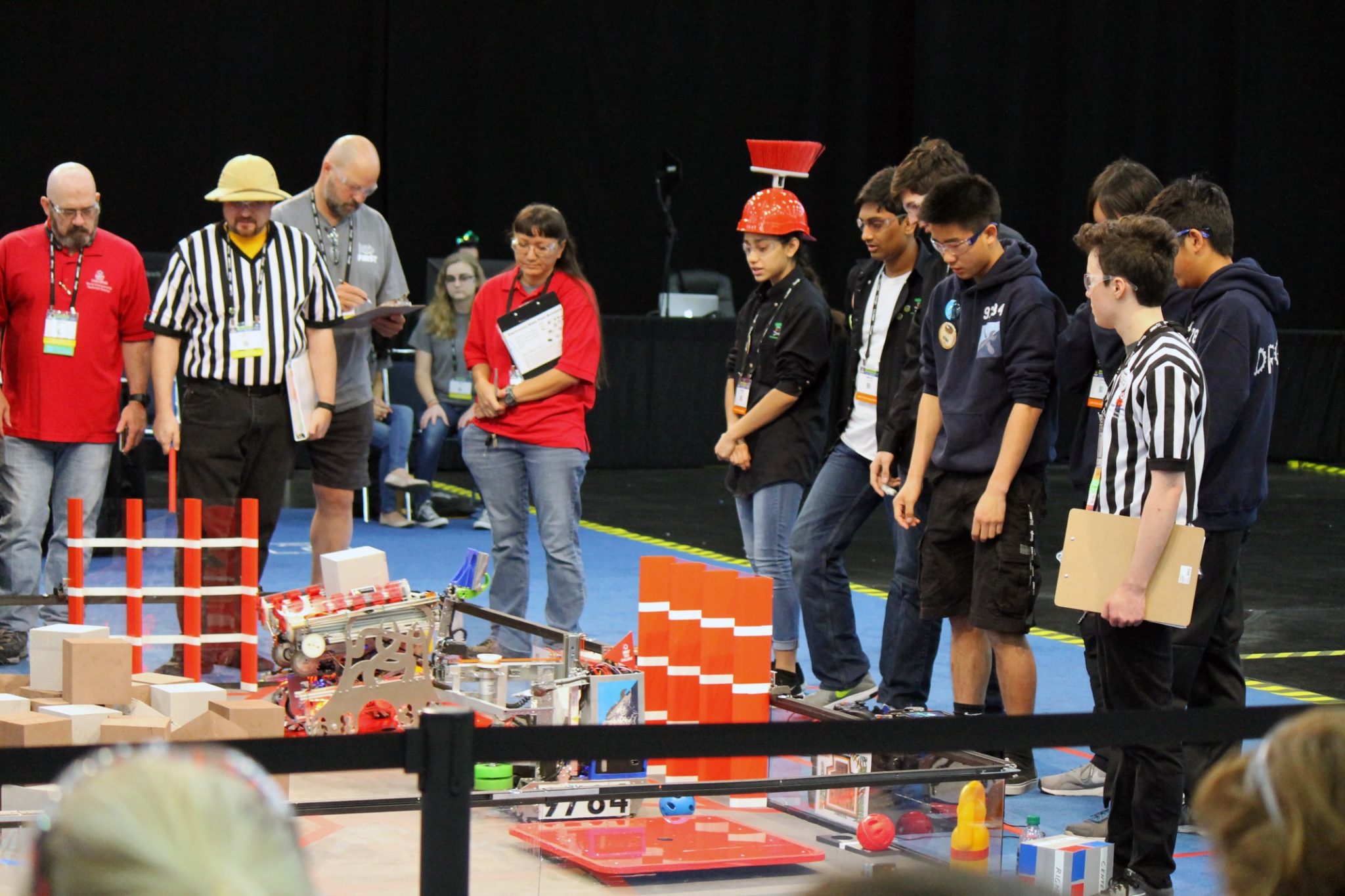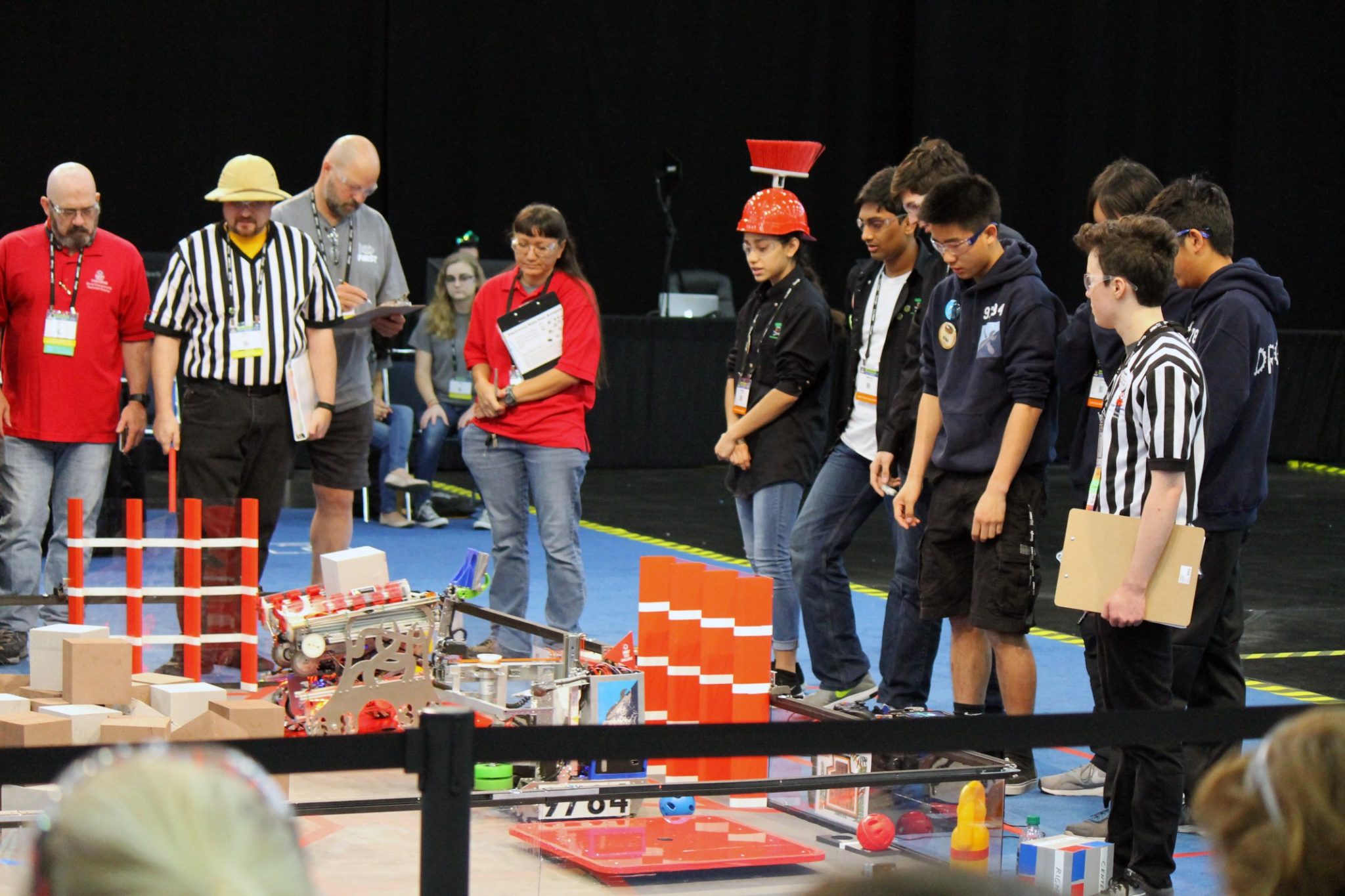

Two robotics teams, Dry Ice and Vulcan, that include Aragon students, competed in the international FIRST Championship in Houston, Texas, from April 18 to 21.
This was Dry Ice’s first appearance at Worlds, while it was Vulcan’s second.
Dry Ice won seven out of nine of their qualifying matches, placing 11th out of 63 teams in the Franklin division. Vulcan won five out of nine of their matches, placing 27th out of 64 teams in the Jemison Division.
Before the start of the robotics competition season, a “challenge of the year” is given. This is a goal that every team must work toward throughout the season, constantly improving their robots to meet the challenge. Teams continuously work and compete in multiple competitions, where champions are named to proceed to the next level.
“Near early September of each year is when they release the game challenge,” Vulcan’s captain and senior Prateek Tenkale said.
This year’s game challenge was “Relic Recovery.” Teams consist of two driver operators and a robot limited to fit in an 18-inch sizing cube. Forty-eight 6-inch foam cubes are placed in a
“glyph pit” in the center of the arena. In a two-minute period, the team must complete several tasks pertaining to these cubes with their robot for a chance to earn points.
“You first have to go to Qualifiers,” freshman and Dry Ice team member Kevin Ren said. “Then you go to Regionals, then Super Regionals. If you do well enough in Super Regionals then you get to go to Worlds.”
As both teams moved forward in the season, the competition became more serious. In response, both teams increased the number of meetings to focus on the creation of the robot.
Dry Ice and Vulcan crossed many barriers throughout the season and constantly worked on their robots to bring them to Worlds.
“During Super Regionals we noticed flaws in our robot,” Ren said, “so we [had] to improve our robot for Worlds and we also [had] to make new changes that we noticed other teams did.”
Last year, Vulcan encountered changes to their team which impacted their success in the season.
“Two years ago all of our founding members left and we ended up making it to the regional level last year, but not past that,” Tenkale said. “We decided to work really hard in the offseason, and we put more effort and now we’ve made it.”
When Tenkale became captain last year, he brought the team to offseason events including the Maker Faire, giving his teammates more practice for this year’s season.
“After that passed, which was in May, we were already a lot better,” Tenkale said.
As it was their first time at Worlds, Dry Ice members were both excited and motivated.
“We put in a lot of work in our meetings, and this year we also did extensive testing to our robot as well so we were better prepared,” said Vulcan member and senior Frank Liu.
For both Vulcan and Dry Ice, preparation for Worlds had taken weeks of training and research in hopes that it paid off.
“This [was] a big deal for us,” Ren said. “We have failed many times in the past but we kept trying.”




Great jobs, Vulcan team and DryIce team! For other viewers, if you are interested in STEMs, FTC is one of the best activities you should try it out. If you are not a handy person, your brain is valuable for different team roles as well.